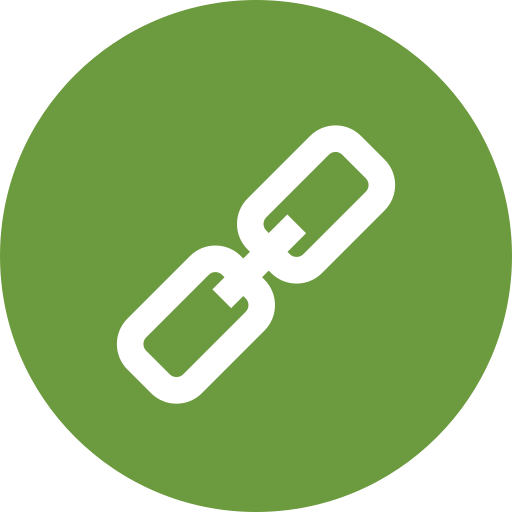| Product name | Per Pill | Savings | Per Pack | Order |
|---|---|---|---|---|
| 30 pills | $1.01 | $30.15 | ADD TO CART | |
| 60 pills | $0.69 | $19.08 | $60.30 $41.22 | ADD TO CART |
| 90 pills | $0.58 | $38.15 | $90.45 $52.30 | ADD TO CART |
| 120 pills | $0.53 | $57.23 | $120.60 $63.37 | ADD TO CART |
| 180 pills | $0.48 | $95.39 | $180.91 $85.52 | ADD TO CART |
| 270 pills | $0.44 | $152.62 | $271.36 $118.74 | ADD TO CART |
| 360 pills | $0.42 | $209.85 | $361.81 $151.96 | ADD TO CART |
| Product name | Per Pill | Savings | Per Pack | Order |
|---|---|---|---|---|
| 60 pills | $0.68 | $40.70 | ADD TO CART | |
| 90 pills | $0.56 | $10.99 | $61.05 $50.06 | ADD TO CART |
| 120 pills | $0.50 | $21.98 | $81.40 $59.42 | ADD TO CART |
| 180 pills | $0.43 | $43.95 | $122.09 $78.14 | ADD TO CART |
| 270 pills | $0.39 | $76.92 | $183.14 $106.22 | ADD TO CART |
| 360 pills | $0.37 | $109.89 | $244.19 $134.30 | ADD TO CART |
| Product name | Per Pill | Savings | Per Pack | Order |
|---|---|---|---|---|
| 60 pills | $0.47 | $28.42 | ADD TO CART | |
| 90 pills | $0.39 | $7.33 | $42.63 $35.30 | ADD TO CART |
| 120 pills | $0.35 | $14.66 | $56.83 $42.17 | ADD TO CART |
| 180 pills | $0.31 | $29.33 | $85.26 $55.93 | ADD TO CART |
| 270 pills | $0.28 | $51.32 | $127.88 $76.56 | ADD TO CART |
| 360 pills | $0.27 | $73.32 | $170.51 $97.19 | ADD TO CART |
Levothroid, also known as levothyroxine, is a synthetic thyroid hormone used to treat hypothyroidism, a condition where the thyroid gland does not produce enough thyroid hormones. In this article, we will delve into the world of Levothroid, exploring its uses, benefits, and how to order Levothroid online.
What is Levothroid?
Levothroid is a synthetic form of thyroxine (T4), a hormone produced by the thyroid gland. It is used to replace the missing hormones in individuals with hypothyroidism, helping to regulate metabolism, growth, and development. Levothroid is available in various strengths, including Levothroid 50 mcg, Levothroid 100 mcg, and Levothroid 200 mcg.
Uses of Levothroid
Levothroid is used to treat a range of conditions, including:
- Hypothyroidism: a condition where the thyroid gland does not produce enough thyroid hormones
- Goiter: an enlargement of the thyroid gland
- Thyroid cancer: to replace hormones after surgical removal of the thyroid gland
- Thyroid nodules: to reduce the size of nodules on the thyroid gland
Benefits of Levothroid
The benefits of Levothroid include:
- Regulation of metabolism: Levothroid helps to regulate metabolism, which can help with weight management and energy levels
- Improved growth and development: Levothroid is essential for growth and development, particularly in children and adolescents
- Reduced risk of complications: Levothroid can help to reduce the risk of complications associated with hypothyroidism, such as heart disease and osteoporosis
How to Order Levothroid Online
If you are looking to buy Levothroid online, there are several options available. You can purchase Levothroid with Amex or other credit cards, and have it delivered directly to your doorstep. Some online pharmacies also offer discount Levothroid 200 mcg and Levothroid 100 mcg order fast delivery options.
Here are some tips to consider when ordering Levothroid online:
- Check the authenticity of the online pharmacy: Make sure the online pharmacy is legitimate and has a good reputation.
- Read reviews and testimonials: Check what other customers have to say about the online pharmacy and the quality of their products.
- Compare prices: Compare prices between different online pharmacies to find the best deal.
- Check for discounts and promotions: Look for discount Levothroid 50 mcg and Levothroid 200 mcg order with Visa options.
Table: Levothroid Strengths and Prices
| Strength | Price |
|---|---|
| Levothroid 50 mcg | $10.99 |
| Levothroid 100 mcg | $19.99 |
| Levothroid 200 mcg | $29.99 |
How to Take Levothroid
Levothroid is typically taken orally, once a day, on an empty stomach. The dosage and frequency of Levothroid will depend on the individual's condition and response to treatment. It is essential to follow the instructions of your healthcare provider and to buy generic Levothroid 50 mcg or Levothroid 100 mcg from a reputable online pharmacy.
Here are some tips to consider when taking Levothroid:
- Take Levothroid at the same time every day
- Take Levothroid on an empty stomach, 30 minutes to 1 hour before breakfast
- Do not take Levothroid with other medications that may interact with it
- Monitor your thyroid hormone levels regularly to ensure the correct dosage
Side Effects of Levothroid
Levothroid can cause side effects, particularly when first starting treatment. Common side effects include:
- Nausea and vomiting
- Headache and dizziness
- Fatigue and weakness
- Weight loss or gain
- Changes in appetite and sleep patterns
List of Possible Side Effects:
- Mild side effects:
- Nausea and vomiting
- Headache and dizziness
- Fatigue and weakness
- Severe side effects:
- Allergic reactions
- Chest pain and shortness of breath
- Seizures and coma
Conclusion
Levothroid is a synthetic thyroid hormone used to treat hypothyroidism and other conditions. It is available in various strengths, including Levothroid 50 mcg, Levothroid 100 mcg, and Levothroid 200 mcg. If you are looking to buy Levothroid online, make sure to check the authenticity of the online pharmacy and read reviews and testimonials. Remember to follow the instructions of your healthcare provider and to monitor your thyroid hormone levels regularly. With the right treatment and care, individuals with hypothyroidism can lead healthy and active lives.
Order Levothroid Now
If you are ready to order Levothroid, you can do so from the comfort of your own home. Simply visit a reputable online pharmacy, purchase Levothroid with Amex or other credit cards, and have it delivered directly to your doorstep. Don't wait any longer to take control of your thyroid health – buy Levothroid online today!
The Importance of Understanding Low Thyroid Hormone Levels: Causes, Symptoms, and Treatment Options
The thyroid gland, a small butterfly-shaped gland located in the neck, plays a vital role in regulating various bodily functions, including metabolism, growth, and development. It produces two main hormones, triiodothyronine (T3) and thyroxine (T4), which are essential for maintaining a healthy balance of bodily functions. However, when the thyroid gland fails to produce sufficient amounts of these hormones, it can lead to a condition known as hypothyroidism, characterized by low thyroid hormone levels. In this article, we will delve into the causes, symptoms, and treatment options for low thyroid hormone levels, highlighting the importance of understanding this condition.
Causes of Low Thyroid Hormone Levels
Low thyroid hormone levels can be caused by a variety of factors, including:
- Autoimmune disorders: Conditions such as Hashimoto's thyroiditis, where the immune system mistakenly attacks the thyroid gland, can lead to hypothyroidism.
- Thyroid surgery: Surgical removal of part or all of the thyroid gland can result in low thyroid hormone levels.
- Radiation therapy: Exposure to radiation, particularly in the neck area, can damage the thyroid gland and lead to hypothyroidism.
- Certain medications: Certain medications, such as lithium and amiodarone, can interfere with thyroid function and lead to low thyroid hormone levels.
- Iodine deficiency: Iodine is essential for the production of thyroid hormones, and a deficiency can lead to hypothyroidism.
- Pituitary gland problems: The pituitary gland regulates the production of thyroid hormones, and problems with this gland can lead to low thyroid hormone levels.
- Genetic disorders: Certain genetic disorders, such as congenital hypothyroidism, can affect the development of the thyroid gland and lead to low thyroid hormone levels.
Symptoms of Low Thyroid Hormone Levels
The symptoms of low thyroid hormone levels can vary from person to person, but common symptoms include:
- Fatigue and weakness: Feeling tired and weak, even after getting enough rest
- Weight gain: Unexplained weight gain, particularly in the midsection of the body
- Cold intolerance: Feeling cold, even in mild temperatures
- Dry skin: Dry, rough skin that may be prone to cracking
- Hair loss: Thinning or falling hair, particularly on the scalp
- Constipation: Infrequent bowel movements or difficulty passing stools
- Depression: Feeling sad, hopeless, or anxious
- Memory problems: Difficulty concentrating or remembering things
Table 1: Common Symptoms of Low Thyroid Hormone Levels
| Symptom | Description |
|---|---|
| Fatigue and weakness | Feeling tired and weak, even after getting enough rest |
| Weight gain | Unexplained weight gain, particularly in the midsection of the body |
| Cold intolerance | Feeling cold, even in mild temperatures |
| Dry skin | Dry, rough skin that may be prone to cracking |
| Hair loss | Thinning or falling hair, particularly on the scalp |
| Constipation | Infrequent bowel movements or difficulty passing stools |
| Depression | Feeling sad, hopeless, or anxious |
| Memory problems | Difficulty concentrating or remembering things |
Diagnosing Low Thyroid Hormone Levels
Diagnosing low thyroid hormone levels typically involves a combination of physical examination, medical history, and laboratory tests. The following tests may be used to diagnose hypothyroidism:
- Thyroid-stimulating hormone (TSH) test: Measures the level of TSH in the blood, which can indicate if the thyroid gland is producing enough thyroid hormones.
- Free thyroxine (FT4) test: Measures the level of FT4 in the blood, which can indicate if the thyroid gland is producing enough thyroid hormones.
- Free triiodothyronine (FT3) test: Measures the level of FT3 in the blood, which can indicate if the thyroid gland is producing enough thyroid hormones.
Treatment Options for Low Thyroid Hormone Levels
Treatment for low thyroid hormone levels typically involves thyroid hormone replacement therapy, which aims to restore normal thyroid hormone levels in the body. The following are some common treatment options:
- Levothyroxine (T4): A synthetic form of T4, which is the most commonly prescribed medication for hypothyroidism.
- Liothyronine (T3): A synthetic form of T3, which may be prescribed in combination with T4 for some patients.
- Natural desiccated thyroid: A medication made from dried and powdered thyroid gland, which may be prescribed for some patients.
Table 2: Treatment Options for Low Thyroid Hormone Levels
| Treatment Option | Description |
|---|---|
| Levothyroxine (T4) | A synthetic form of T4, which is the most commonly prescribed medication for hypothyroidism |
| Liothyronine (T3) | A synthetic form of T3, which may be prescribed in combination with T4 for some patients |
| Natural desiccated thyroid | A medication made from dried and powdered thyroid gland, which may be prescribed for some patients |
Lifestyle Changes to Manage Low Thyroid Hormone Levels
In addition to medication, there are several lifestyle changes that can help manage low thyroid hormone levels, including:
- Eating a balanced diet: Eating a diet rich in fruits, vegetables, whole grains, and lean protein sources can help support thyroid function.
- Getting regular exercise: Regular exercise, such as walking or yoga, can help improve mood and energy levels.
- Managing stress: Stress can exacerbate symptoms of hypothyroidism, so finding ways to manage stress, such as meditation or deep breathing, can be helpful.
- Getting enough sleep: Getting enough sleep is essential for overall health, and can help improve symptoms of hypothyroidism.
Conclusion
Low thyroid hormone levels can have a significant impact on overall health and quality of life. Understanding the causes, symptoms, and treatment options for hypothyroidism is essential for managing this condition. By working with a healthcare provider and making lifestyle changes, individuals with low thyroid hormone levels can manage their symptoms and improve their overall health. Remember, it's essential to seek medical attention if you're experiencing symptoms of hypothyroidism, as early diagnosis and treatment can make a significant difference in managing this condition.
Additional Resources
For more information on low thyroid hormone levels, please consult the following resources:
- American Thyroid Association: A professional organization dedicated to promoting thyroid health and awareness.
- Thyroid Foundation of America: A non-profit organization dedicated to supporting individuals with thyroid disorders.
- National Institute of Diabetes and Digestive and Kidney Diseases: A government agency that provides information on thyroid health and disease.
By taking the time to understand low thyroid hormone levels, individuals can take the first step towards managing their symptoms and improving their overall health. Remember, it's essential to work with a healthcare provider to develop a personalized treatment plan that meets your unique needs and health goals.
























